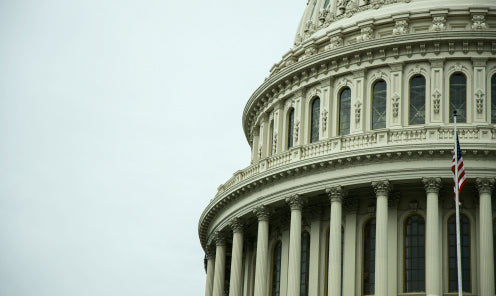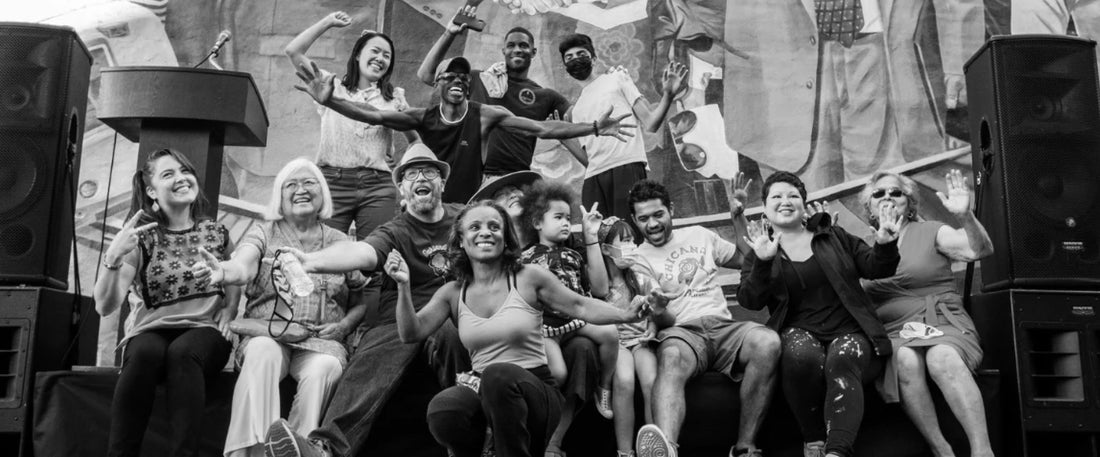Finding equitable solutions to the climate crisis
With climate catastrophes mounting all over the world, the impacts of climate change are growing more present and urgent for all of us. But not all communities are impacted equally. The Greenlining Institute, a proud partner of Credo, is advancing equitable climate resilience strategies that acknowledge and address the legacies of harm that underpin our society.
We all live in and are impacted by the global climate. However, with vast differences in risk factors based on where we live, our race, and how well-resourced we are, we certainly don’t experience climate disasters and related impacts the same. Communities of color suffer climate related impacts first and worst.
For example, communities of color--in particular Black residents--in New Orleans were segregated to less desirable areas of the city, including areas located below sea level. Redlining then meant that these areas were systematically denied economic opportunities and investments. The result? A substantially weakened infrastructure that crumbled with the arrival of Hurricane Katrina, leaving the Black community literally underwater and devastated. And after the flood waters receded, these formerly-redlined communities had significantly fewer resources and infrastructure to recover while wealthier areas of the city rebounded more quickly.
Building equity through community resilience
Environmental racism is not new. And, building lasting climate resilience for our communities can only be achieved by focusing on the intersection of climate action, racial justice, and economic equity.
Equitable climate action uplifts frontline communities so that they do not simply “bounce back” after climate disasters strike, but are able to “bounce forward” as healthy, resilient and sustainable communities. For example, systemic disinvestment and racism has left areas like Jackson, Mississippi, a city of 150,000 mostly Black residents without access to safe water. This is an emergency today. But think about what will happen to those residents when the next Category 5 hurricane hits? How long will it take them to recover? It’s not just about bouncing back, it’s about ensuring communities of color can thrive in the here and now.
That’s why Greenlining is building resilience in the communities that have suffered disproportionately from climate impacts due to racist policies and practices like redlining and systemic disinvestment. For example, over the last decade, we have pioneered a unique approach to fostering community-led solutions to meet the needs of frontline neighborhoods through a model called Transformative Climate Communities. Through this climate action model, we work alongside and within communities of color so their concerns and demands are prioritized by climate activists and policymakers, resulting in healthier, thriving communities that embrace a more regenerative, people-centered relationship with our environment.
Securing funding for community resilience priorities
A large part of Greenlining’s resilience work also involves engaging in budget advocacy to ensure communities have resources for resilience efforts. Since our nonprofit incorporation in 1993, Greenlining has successfully advocated and negotiated initiatives directing over $600 billion in corporate and public investments into targeted communities of color in California and across the nation. Our policy advocacy in California has led directly to over $5.4 billion in climate investments directed to formerly redlined neighborhoods.
The recent passage of California’s historic climate budget means we have more opportunities to transform statewide infrastructure and practices, such as reliance on gas-powered vehicles, to reduce our greenhouse gas emissions. For us at Greenlining, this is also an opportunity to partner with state officials and agencies to ensure the implementation of these investments reach and prioritize the communities that most need them, using our Making Equity Real Guidebook to offer policymakers comprehensive equity recommendations resulting in cleaner air, safer and more reliable infrastructure, and ultimately slowing impacts of climate change.
Choosing equity everyday
Equity is a practice that requires a sustained, shared commitment to our collective wellbeing. For those that do have access to wealth and buying power, it’s critical to understand that our choices–like whether or not to support companies and products that prioritize sustainability and equity–can and do have impacts beyond our own lives. Companies like Credo make it possible for individuals across different communities to make informed, sustainable choices about the beauty products they use, and the Credo for Change program is helping BIPOC entrepreneurs to tap into resources they need to build successful brands.
Greenlining’s vision for a just future–one where everyone can live in healthy, safe communities with equitable access to opportunities–is going to take commitment from everyone. This means that from corporations to nonprofits, communities to policymakers, and institutions to individuals–we all have a role to play.












